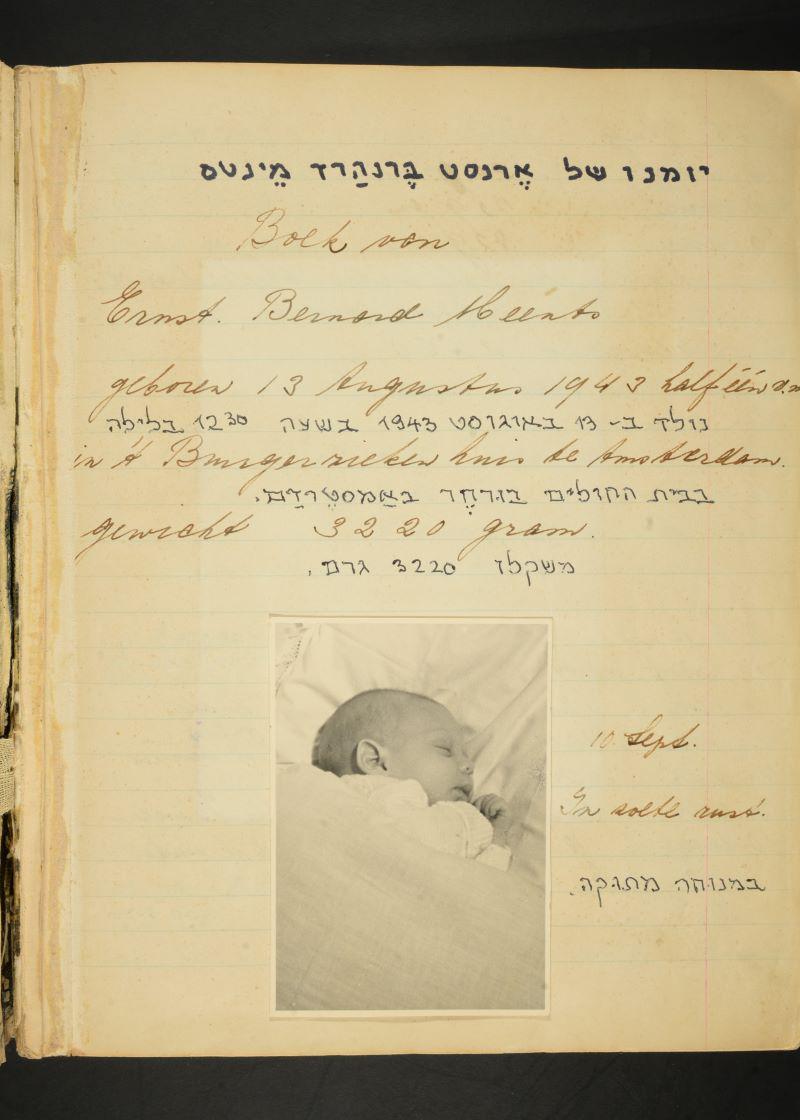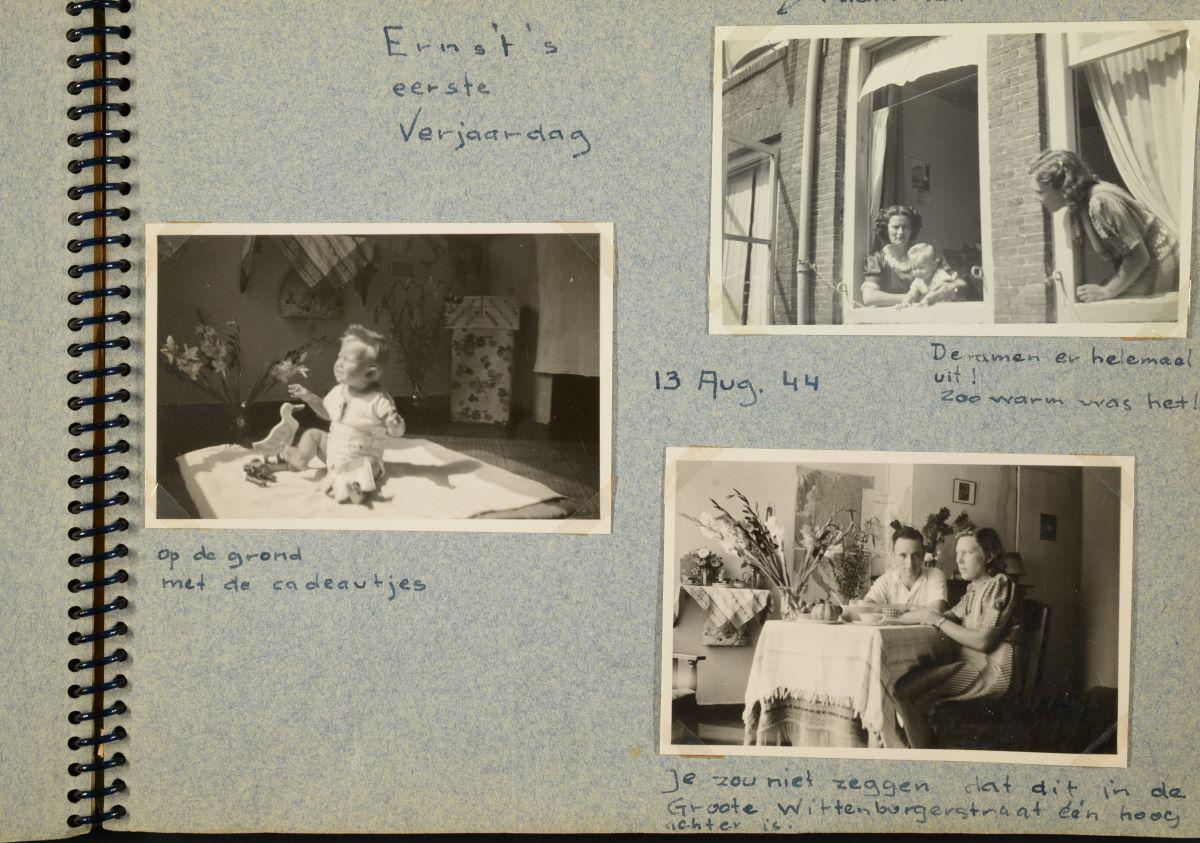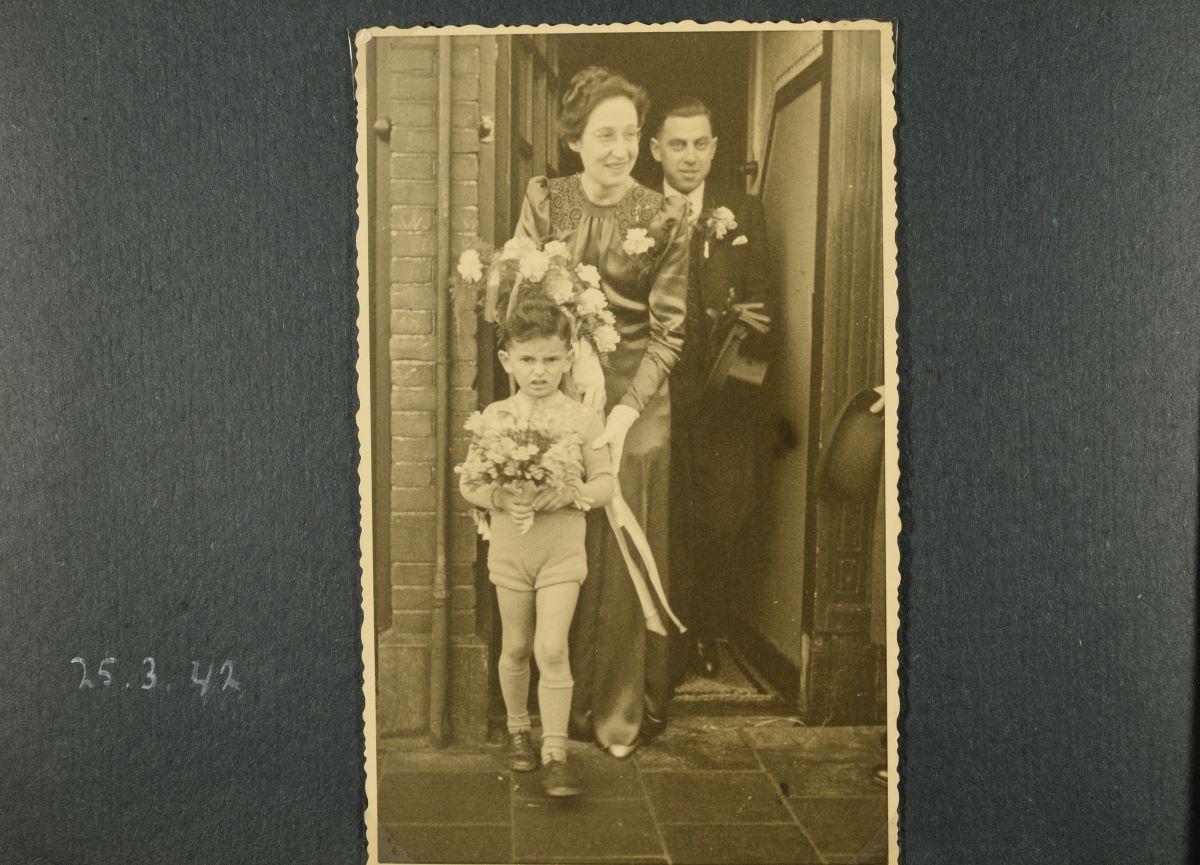
Yad Vashem Archives


Yad Vashem Archives


Yad Vashem Archives

Childhood scrapbooks, cherished baby books or albums, were a long-standing tradition in Central & Western Europe. These scrapbooks not only record the development of the child from birth to adolescence, they are tokens of affection lovingly crafted by parents for their offspring.
Yad Vashem, the World Holocaust Remembrance Center in Jerusalem, recently acquired several of these childhood scrapbooks through it's 'Gathering the Fragments' initiative. These artifacts from the Holocaust period shed light on a lesser-explored aspect of Holocaust history: the family structure during the Holocaust. Unable to protect their children, many Jewish parents made the unimaginable choice to entrust their beloved children into the care of non-Jewish rescuers who sheltered and raised these Jewish children under threat of certain persecution. These documents are able to provide a unique lens into the experiences of these adoptive parents and the children under their care. They offer a glimpse into the compassion and humanity of these adoptive parents' unwavering dedication to nurture and protect these children amidst unimaginable adversity.
Among these poignant narratives are three childhood scrapbooks recounting the lives of Jewish children born in the Netherlands during the war years of 1942-1943. Through these accounts, we gain further insight into the varied motivations and experiences of these individuals who not only risked their own safety to save these children but meticulously documented their journey through words and photographs, often utilizing home cameras. These scrapbooks not only capture the bravery and compassion of these rescuers but also serve as testament to the enduring power of hope and humanity amidst the darkest of times.
Avraham Packer's adoptive mother, Maria Packer, supported by a local priest during her first steps into motherhood, penned Avraham's childhood scrapbook with compassion and empathy for his biological mother, who had to reluctantly part with her children during the war. In his testimony to Yad Vashem, Avraham recalls how Maria, having given birth to her own child near the war's end, felt compelled to ensure his birth mother stayed connected, even at a distance, by meticulously documenting his early years. Despite the danger, Maria safeguarded this photo album, ensuring its survival. Miraculously, all members of Avraham's family, while hidden separately, survived and were reunited post-liberation. The bond with his adoptive parents endured, and the documents they preserved were later used as crucial evidence in their recognition as Righteous Among the Nations.
As for the story of survivor Rolf Stibbe, we find a story of resilience and loss. Born during the war in 1942, Rolf's journey is detailed in a childhood scrapbook album, penned by his adoptive mother. His biological parents, faced with the upheaval of war, made the heart-wrenching decision to part with him. The Kirpenstijns, educators by profession, opened their hearts and home to Rolf, alongside other children they sheltered during the war. Tragically, Rolf's biological family perished in Auschwitz and Sobibor, leaving him with no remaining relatives.
Raised by his adoptive parents until his teenage years, Rolf's adoptive mother continued to meticulously document his development, serving as a poignant recollection of his past. Written with the insight of an experienced educator, the scrapbook gently unveils Rolf's Jewish heritage and the tragic fate of his family members. Despite the challenges of separation and loss that Rolf faced, his adoptive mother's profound sensitivity and care shine through, providing him with a tangible connection to his roots as he navigates adulthood.
Efraim Kochva's story presents a unique perspective on these types of adoption. Raised by the Mintz couple, who were close friends of his biological parents, Efraim's childhood was carefully inscribed in a heartfelt album compiled by his adoptive mother, Jacqueline. As an interreligious couple – Max, Jewish, and Jacqueline, Christian - they embraced Efraim as their their own. Jacqueline's dedicated records were the key to bridging between Efraim and his father, Max, who was detained in Westerbork during Efraim's infancy.
Efraim's scrapbook album not only chronicles Efraim's development but also reflects her journey as a first-time parent, navigating the complexities of raising a child alone, while worrying about her husband's safety. Tragically, Efraim's biological parents perished towards the end of the war, leading to a custody battle that eventually placed him with his biological family after Jacqueline's passing.
Efraim's journey eventually led him to Israel at a young age, where he was raised by his biological relatives. It wasn't until his early twenties that Efraim learned the full extent of his adoptive parents' sacrifices during the Holocaust and was reunited with his adoptive father in the Netherlands. At forty, he received his childhood scrapbook album, translated into Hebrew by his relatives, providing him with a poignant link to his past and the love that shaped his upbringing.










